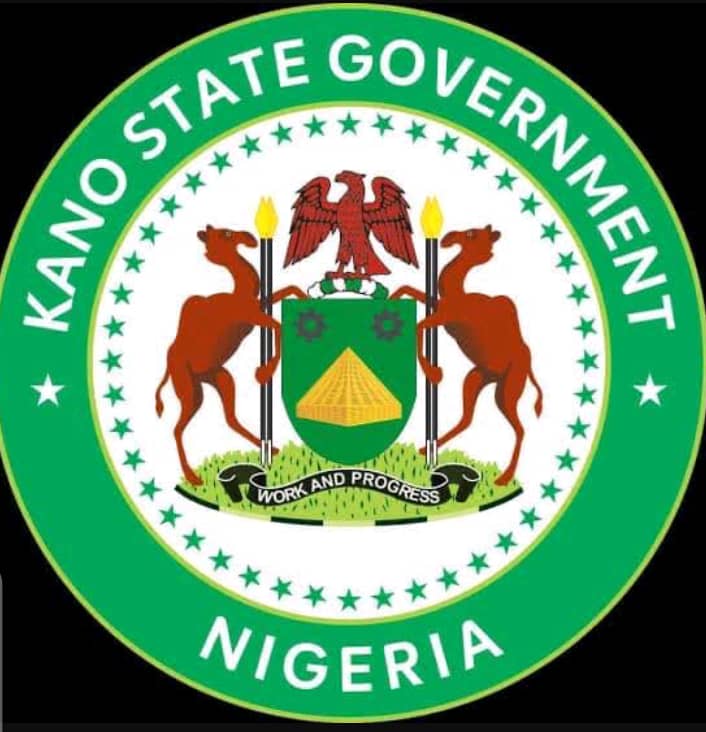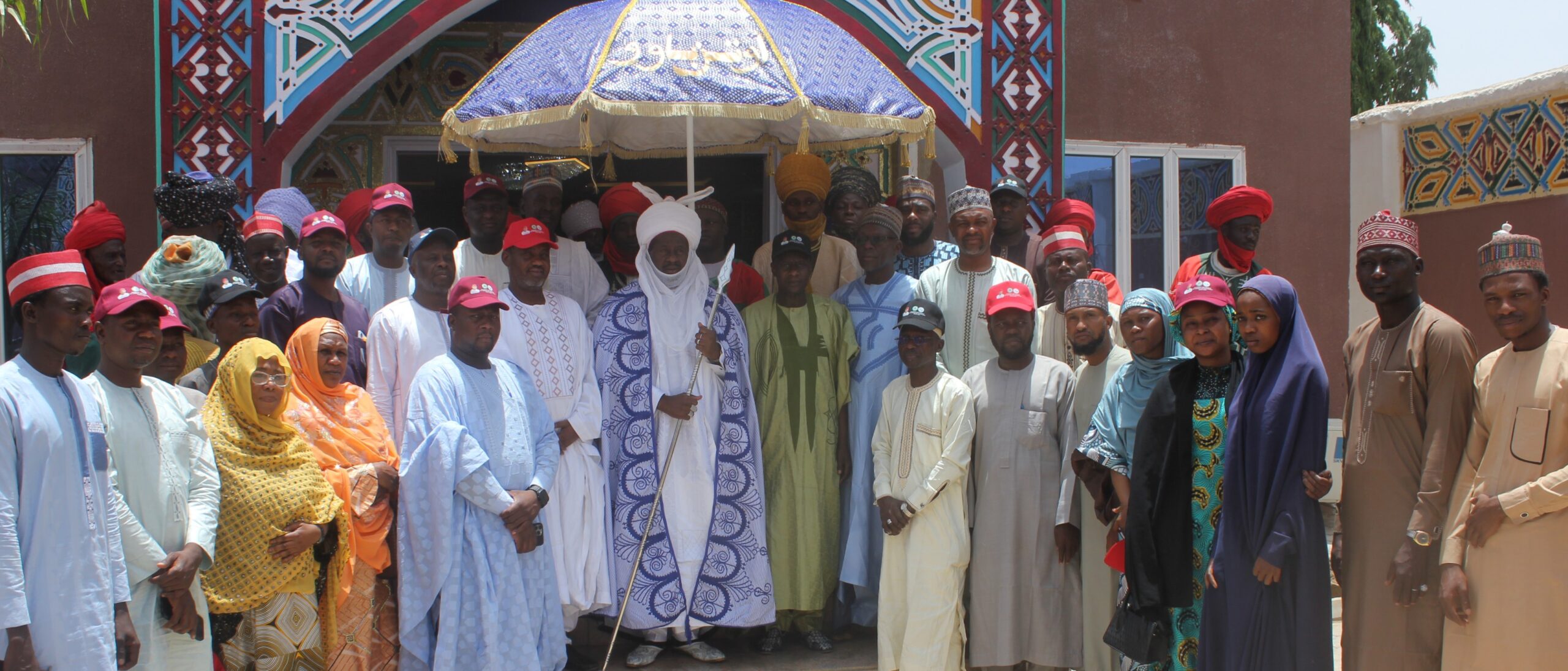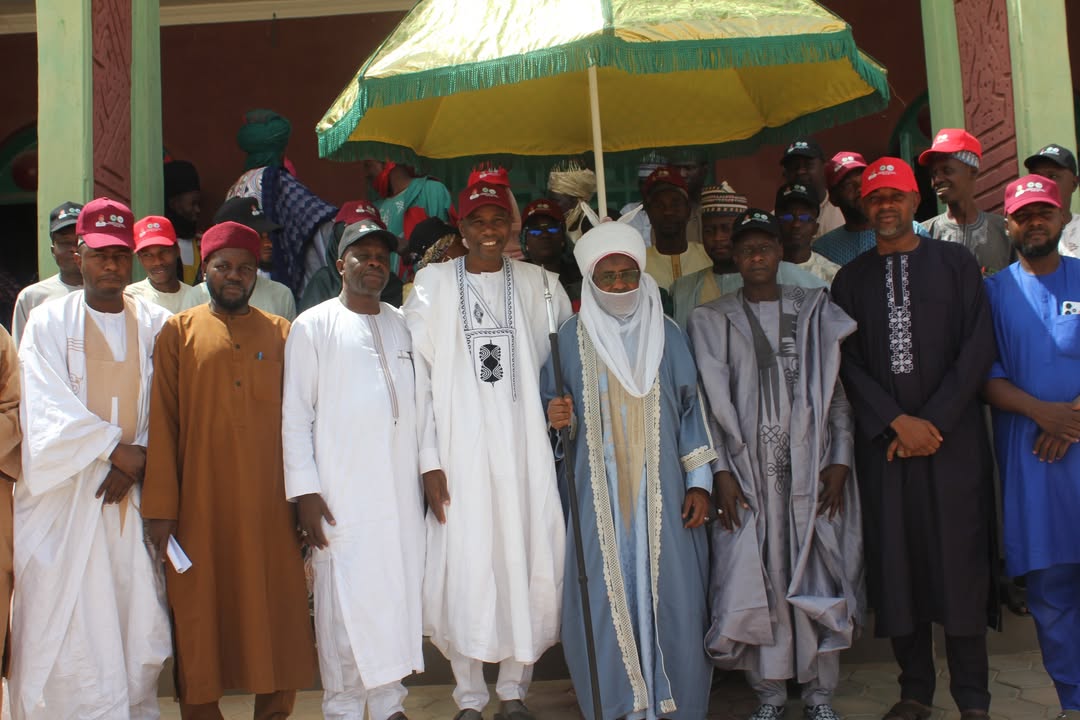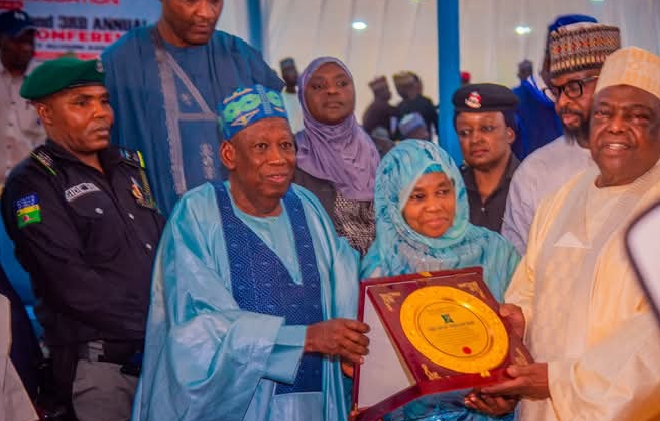Headlines
Kano Deploys Digital Tax Reforms to Improve Revenue Mobilisation

Zulaiha Danjuma
Effective tax collection is the lifeblood of any government seeking robust revenue growth. For Kano State, digital innovation has been integrated into its tax landscape through the development of digital public infrastructure (DPI). This DPI aims to improve tax revenue collection, compliance, and citizen engagement through digital solutions for all

KANO FOCUS reports, like many other Nigerian states, Kano has had its fair share of tax collection troubles. A notable reference point is the manual collection of taxes by tax office collectors from those under the informal sector category.
In 2021 to 2023, about 7.8 billion Naira was realized from 60,000 tricyclists paying a daily manual levy of 100 Naira to the then Kano State Road Traffic Agency (KAROTA) Management tax collectors. However, responsible government agencies could not account for these funds.
For Abba sani, a young cosmetics vendor, the manual tax collection system was a constant source of frustration. “I’m young, but I’ve never used any e-platform to pay taxes because I don’t know about it,” he admits, highlighting the difficulties faced by many informal taxpayers.
Hamisu Abba, a chicken seller in Kasuwar Sheka, shares Abba sani’s skepticism. “Even banks make errors with transfers, making you wait days to revert a payment. Why should I take the same risk with a tax payment that belongs to the government?” he asks, his brow furrowed with concern.
The incorporation of technology into the tax collection system, particularly for informal sectors, was taken up when the Kano State Internal Revenue Service (KIRS) started collecting daily levies from tricyclists using the Point of Sale (POS) machine in mid 2021. Despite the fact that this initiative did not last long for daily tax collection for tricyclists. This marked the beginning of Kano State’s digital tax revolution.
The Kano State Internal Revenue Service has developed two digital platforms, KIRMAS (Kano Integrated Revenue Management and Assurance System) and eeZitax, to facilitate tax payments. The KIRMAS was launched in the second quarter of 2024, while the eeZitax was launched and introduced on 2rd January of this year 2025.
These platforms enable taxpayers to register, generate invoices, and make payments online or through authorized agents.
KIRMAS has been said to be a more comprehensive system that covers various aspects of tax administration, including taxpayer registration, tax assessment, billing, payment, and reporting.
The KIRMAS which is a platform that supports the Central Billing System (CBS) has been able to standardize the billing process across all Ministries, departments and agencies (MDAs) with the implementation of the Signal Central Revenue Account (SCRA) in Kano state. However, the platform has been flagged off by the KIRS to have some limitations
“The KIRMAS has a redundant database, this is a problematic issue that makes planning unachievable. The system is no longer for the current tax collection process” Isa Yakubu Yargaya, of the Revenue Accounting Department, said.
Mr. Yakubu explained that the Kano state Internal Revenue Service introduced eeZitax to address KIRMAS limitations.
“That was why eeZitax was introduced, it’s simpler to administer, users can understand it easily and data of taxpayers is secure and reliable” he added
According to Yakubu eeZitax have had commendable compliance level and reception from various corporate and other stakeholders
“The eeZitax platform has received overwhelmingly positive feedback, not only from taxpayers but also from banks and other stakeholders, thanks to the tireless efforts of the KIRS team” he stated
“We got so many compliance, roughly we can say the compliance level for the eeZitax is at 50%, there are huge numbers of tax payer registered on the platform, though I don’t have the explicit figure on hand right now, it’s huge” he said
The eeZitax, tax collection platform has been in active use now for two weeks and few days.
Despite the integration of technology in Kano’s tax payment system, including online payments, bank transfers, and invoice generation, the informal tax base has yet to benefit significantly from these digital advancements. Sadiq Muhammad Mustapha, Programme lead at the Tax Justice and Governance Platform (TJ & GP), identified low literacy levels among those in the informal sector as a major challenge.
Auwal Salisu, a textile seller in Kantin Kwari, echoes this concern. “Multiple tax collections, reliance on cumbersome hand-to-hand payments, and vulnerability to scams by impersonators posing as official tax collectors – these are the challenges we face daily.” Bello Muhammad, who sells at the Friday market in Wudil, adds, “We’re willing to pay taxes, but we need a system that’s transparent, efficient, and easy to use, most of use are not literate to use advanced systems like E-tax payment platform” he said
According to Mr. Sadiq, Oya state despite also having a large informal tax base as kano, have been able to capture peculiar concerns with that session of taxpayers by coming up with a USSD code (Unstructured Supplementary Service Data) for tax payments
“Kano State can adopt this process to make it easier for informal taxpayers to deal with the issues of literacy levels and skepticism of digital tax payment platforms” he said.
However, Mr. Yakubu said the KIRS had used the USSD as a tax payment alternative for a time period spanning from 2023 to 2024.
“We used this USSD, the service is trying out a number of alternative methods of tax collection to see what suits best”
“When we rolled out the use of USSD codes we had a compliance level of 20% from the informal sector at the time” he said
To address these challenges, the Kano State Internal Revenue Service is conducting awareness campaigns and sensitization initiatives to educate taxpayers about the benefits and usage of these digital platforms. Mr. Yakubu emphasized the importance of these initiatives in promoting transparency and accountability in tax collection.
“The Kano State Internal Revenue Service is making all these reforms to make the payment process between taxpayers and the Kano state Government easy”
“This digitalization is to foster accountability and adequate revenue generation to help the government provide better public amenities to Kano state” he said.
According to Mr. Yakubu the service is also engaging and working adequately with Non-governmental Organizations to push sensitization and awareness about the benefits of digital tax payments and platforms. “We have massive sensitization outreach next week in some rural communities on this issue,” he said.
As Kano State continues to navigate the digital tax landscape, it’s essential to address the concerns of informal taxpayers. By simplifying the tax payment process, providing reliable e-tax payment options, and harmonizing taxes, the state can unlock robust revenue growth and improved citizen engagement.
The journey ahead will be long and challenging, but the potential rewards are significant. By leveraging digital public infrastructure, Kano State can create a more efficient, transparent, and inclusive tax system, ultimately improving the lives of its citizens.
This story is produced under the Digital Public Infrastructure (DPI) Fellowship of the Media Foundation for West Africa (MFWA) and Co-Develop in partnership with Kano Focus Newspaper online.

Headlines
Emir of Rano lauds AGILE for educational intervention

Aminu Abdullahi
The adolescent girls initiative for learning and empowerment AGILE has been described as a major catalyst to educational development.

KANO FOCUS reports that the Emir of Rano, Alhaji Muhammad Isa Umaru, made the indication while receiving AGILE team in his palace.
According to him, Kano has witnessed significant progress in girl child education facilitated by AGILE, hence the need for traditional institutions and relevant stakeholders to contribute their quota to achieve the desired objectives.
He noted that, Rano Emirate has been at the forefront of ensuring enrollment retention and completion of girls education through various initiatives.
The emir called on the Adolescent Girls Initiative for Learning and Empowerment (AGILE) to upgrade the girls school in his community.
The monarch said, the school, located beside the palace, requires expansion to accommodate a larger number of students.
The traditional ruler suggested that AGILE should visit the school to assess its condition, saying that, relocating the school to a bigger location had been earlier considered.
In his remarks the permanent secretary Kano state ministry of education Alhaji Bashir Baffa explained that, they were at the palace to seek for support and blessings form the royal father.
He said, AGILE has fostered an enabling environment for girls through promoting behavioral changes through communication campaigns engagement with traditional rulers and advocacy.
He maintained that, the team has embarked on advocacy visits to all relevant stakeholders at community and state levels on the importance of girls education.
Alhaji Baffa hinted that the state government had declared a state of emergency on education, hence the need for the traditional institution to contribute its quota to achieve the desired objectives.
He posited that, the team will visit the school to see possible ways of intervening for the development of education.
The permanent secretary also used the opportunity to condole Rano emirate over the killing of its indigenes in Uromi.
KANO FOCUS reports that, earlier the team has paid a similar visit to Karaye Emirate council as part of efforts to advocate for support from the traditional institution and relevant stakeholders.

Headlines
Kano AGILE renovates 1,300 schools, enrolls 30,000 girls in three years

Aminu Abdullahi Ibrahim
The Kano State Ministry of Education’s Adolescent Girls Initiative for Learning and Empowerment (AGILE) Project, supported by the World Bank, has successfully renovated over 1,300 senior and junior secondary schools in the state in the last three years.
KANO FOCUS reports that the state commissioner for education, Alhaji Ali Haruna Makoda, disclosed this during a visit to the Karaye Emirate on Tuesday.

He added that the AGILE program has enrolled more than 30,000 girls through targeted outreach, grants, and its Second Chance education initiative.
Makoda further revealed that the state government has finalized plan to construct 130 new schools in rural communities, with over 35,000 girls already benefiting from financial assistance under the scheme.
He urged the Karaye Emirate to lend full support to the program and prioritize girls’ education.
In his remarks, the Emir of Karaye, Alhaji Muhammad Maharaz, pledged the emirate’s commitment to advancing girls’ education in Kano State.
He commended the state government and the commissioner for their dedication to the programme’s success.
“It is our collective responsibility to support this initiative,” the Emir stated, calling for measures to ensure beneficiaries complete their education with strong academic outcomes.
The commissioner’s delegation consist of the Kano State AGILE Project Coordinator, Malam Mujitapha Aminu and other members of State Programme Implementation Unit (SPIU).

Headlines
BUK Faculty of Education celebrates 50 years anniversary, launches Alumni Association

Aminu Abdullahi Ibrahim
Bayero University Kano (BUK) on Monday celebrated the 50th anniversary of its Faculty of Education and inaugurated its Alumni Association at the Convocation Arena of the university’s new campus.

KANO FOCUS reports that the event was graced by government officials, education stakeholders, and alumni all gathered to commemorate the faculty’s contributions to Nigeria’s educational sector.
In her keynote address, the State Minister for Education, Mrs. Suwaiba Sa’id Ahmad announced the Federal Government’s Sector Renewal Initiative designed to transition Nigeria from a resource-based to a knowledge-based economy.
She highlighted that the aim of the renewal initiative consists of – Reducing the number of out-of-school children; combating learning poverty; nhancing skills development and human capital for the labor market
The minister noted that the initiative prioritizes Technical and Vocational Education and Training (TVET); Science, Technology, Engineering, and Mathematics (STEM); Digital literacy and education quality assurance.
Mrs. Ahmad disclosed that the Federal Government had disbursed ₦35 billion to 261 beneficiaries under the Nigerian Education Loan Fund (NELFUND), with BUK among the top beneficiaries.
“So far, the scheme has received 420 applications, and we are scaling up investments,” she stated.
She further confirmed that President Bola Ahmed Tinubu approved ₦120 billion to boost TVET programs, with plans to train 650 youths in technical, vocational, and digital skills over the next two years.
Emeritus Professor Sani Ahmad Sufi, former Permanent Secretary of the Ministry of Education, praised the faculty for its high-quality graduates.
“Our pride lies not just in the number of graduates produced yearly, but in their impact across Nigeria and beyond,” he said.
He added that the faculty has produced Nigeria’s largest pool of graduate teachers many of whom hold key positions nationally and internationally.
The National Chairman of the All Progressives Congress (APC), Dr. Abdullahi Umar Ganduje applauded the faculty for its significant role in advancing education in Nigeria.
The event concluded with awards presented to distinguished alumni and supporters of the faculty in recognition of their contributions to its growth.

























